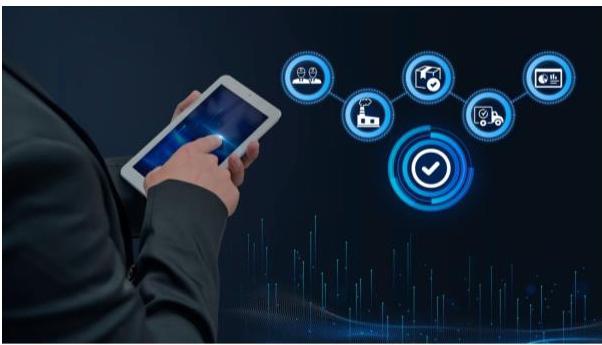In a world where data has become the new oil, being able to extract, analyze, and respond to data insights has become a competitive advantage. Enterprise Resource Planning (ERP) solutions have always been the backbone of operational management—structuring everything from finance and human resources to supply chains and procurement. But old-school ERP solutions were all about transactional efficiency, not strategic intelligence.
Today’s digital-first economy requires more than just recording business events—it demands predictive insights, intelligent automation, and self-optimizing processes. This is where SAP Business AI steps in, redefining ERP intelligence with embedded artificial intelligence capabilities.
This blog explores the key differences between SAP Business AI and traditional ERP intelligence, highlighting how forward-thinking businesses can leverage the next generation of ERP solutions for data-driven success.
1. The Evolution of ERP Intelligence
Classical ERP was meant to centralize data, standardize processes, and enhance control of operations. Although it was successful in all those areas, it was primarily reactive in design—based on human interpretation of dashboards and reports, leading to decision-making.
SAP Business AI brings a transformational change. Instead of simply playing the role of a system of record, it becomes a system of intelligence—employing machine learning (ML), natural language processing (NLP), and data-driven algorithms to provide proactive insights and automation.
Legacy ERP Intelligence:
- Rule-based procedures
- Batch reports
- Manual interpretation of data
- Historical data analysis
SAP Business AI:
- Predictive analytics
- Real-time decision support
- Automated recommendations
- Self-learning systems
2. Real-Time Decision Making: From Reports to Recommendations
Classic ERP depends on scheduled reports and dashboards. Although these are valuable pieces of information, they tend to represent what happened yesterday. Decision-makers must go through the effort of examining reports, recognizing patterns, and acting—a time-consuming task with a high risk of human error.
SAP Business AI reads data in real time, identifies anomalies, and gives actionable suggestions on the spot. As an illustration, rather than merely presenting a decline in inventory turnover, SAP Business AI may suggest altering supply levels or renegotiating contracts with vendors.
Primary Benefit: Real-time intelligence with low latency supports rapid, responsive decision-making.
3. Predictive Capabilities: Looking Around the Corner
While legacy systems offer descriptive insights (what occurred), SAP Business AI includes predictive capability (what will occur).
Applicative examples of SAP Business AI predictive capabilities are:
- Predicting late payments and cash flow risks
- Predicting supply chain disruptions
- Predicting employee attrition levels
- Predicting demand trends in real-time
With forecasting models powered by AI, companies are no longer relegated to respond—they can anticipate and benefit from upcoming situations.
4. Intelligent Automation: Transcending Process Efficiency
ERP traditionally needs to be manually intervened for most tasks—financial data reconciliation, purchase order matching, approval generation, etc. As efficient as these processes are, they are still human-centric and prone to errors.
SAP Business AI presents intelligent automation—eliminating manual roadblocks and facilitating “lights-out” processes.
Some examples are:
- Automated approval and matching of invoices
- AI-powered customer support through chatbots
- Smart sourcing decisions on the basis of supplier performance
- Automated checks for compliance
This leads to quicker cycle times, less operational expense, and better accuracy.
5. Customized User Experience with SAP Fiori & AI
User experience is another area where SAP Business AI diverges from classical ERP systems. In classical ERP systems, users are usually bombarded with complicated interfaces and irrelevant information, which complicates decision-making.
SAP Business AI, in conjunction with SAP Fiori, provides a role-based and personalized interface. The system adapts to user behavior to present relevant information and insights, ranking activities according to urgency and business impact.
Legacy ERP UI:
- Dashboards that fit all
- Forms and layouts that are static
SAP AI-Driven UX:
- Role-based, adaptive dashboards
- AI-recommended suggestions and alerts
This results in improved productivity, rapid training, and improved adoption.
6. Seamless Integration with Business Ecosystems
Traditional ERP systems typically run in silos or need complicated middleware to integrate with external systems. This causes inefficiency in workflows and restricts visibility between departments or partner networks.
SAP Business AI is based on the SAP Business Technology Platform (BTP), which can be integrated with:
- SAP modules (e.g., SAP Ariba, SuccessFactors, Concur)
- Third-party platforms (e.g., Salesforce, Microsoft Azure)
- IoT and edge computing systems
This end-to-end connectivity offers real-time visibility across the enterprise value chain, with AI as the orchestrator of smart workflows.
7. Embedded Compliance and Risk Management
In conventional ERP environments, compliance checks are either manual or post-facto. The system depends on users to recognize regulatory dangers or data discrepancies—too late too often.
SAP Business AI integrates compliance and risk analysis into operational procedures. It automatically alerts on possible issues, including:
- Financial discrepancies
- Regulatory non-conformities
- Security breaches
Through the integration of machine learning and governance models, SAP Business AI minimizes compliance expense while improving precision.
8. Vertical-Specific Intelligence
Industry-specific intelligence is another aspect where SAP Business AI surpasses conventional ERP.
SAP Business AI features pre-trained AI models specific to verticals such as:
- Manufacturing: Predictive maintenance, quality control
- Retail: Dynamic pricing, inventory optimization
- Finance: Fraud detection, risk scoring
- Healthcare: Patient experience optimization, claims automation
These business-domain-specific AI functions speed up value realization and diminish time-to-insight for companies.
9. Self-Learning Systems: From Static Rules to Dynamic Intelligence
Basic ERP logic is rules-driven. This implies the system executes pre-set instructions, unable to learn or modify its behavior unless programmed anew.
SAP Business AI introduces self-learning functions to the enterprise. The more data the system is exposed to, the more it learns to refine decisions and get better over time.
For example:
- Sales forecast models get better with each loop
- Recommendation engines learn and refine on feedback
- Workflows respond to performance results
The loop of continuous learning builds a more responsive, intelligent business.
10. ROI and Total Cost of Ownership
Though SAP Business AI calls for upfront investment—particularly for companies migrating from legacy systems—the ROI in the long run is far greater.
Cost Drivers in Traditional ERP:
- Manual effort for reconciliation and reporting
- Downtime spent on reactive troubleshooting
- Increased support costs for scheduled maintenance
Value Drivers in SAP Business AI:
- Less manual effort through automation
- Accelerated decision-making based on real-time insights
- Reduced risk through predictive analytics
- Increased user productivity and satisfaction
SAP Business AI has enabled organizations to achieve shorter time to value, greater agility, and higher profitability.
Conclusion: Why SAP Business AI Is the Future of ERP Intelligence
The transition from classic ERP smarts to AI-based ERP solutions such as SAP Business AI is not merely a tech trend—it’s a matter of strategy. In a digital economy where speed, accuracy, and vision matter most, companies can’t afford to stick with stale, reactive processes anymore.
SAP Business AI revolutionizes ERP from a back-office function to a strategic partner—informing decisions, automating responses, and revealing hidden value throughout the enterprise. By substituting foresight for hindsight and intelligence for process, SAP Business AI opens the way to an intelligent enterprise.
SAP Business AI enables organizations to take advantage of emerging opportunities, leading in innovation, customer experience, and operational excellence.

